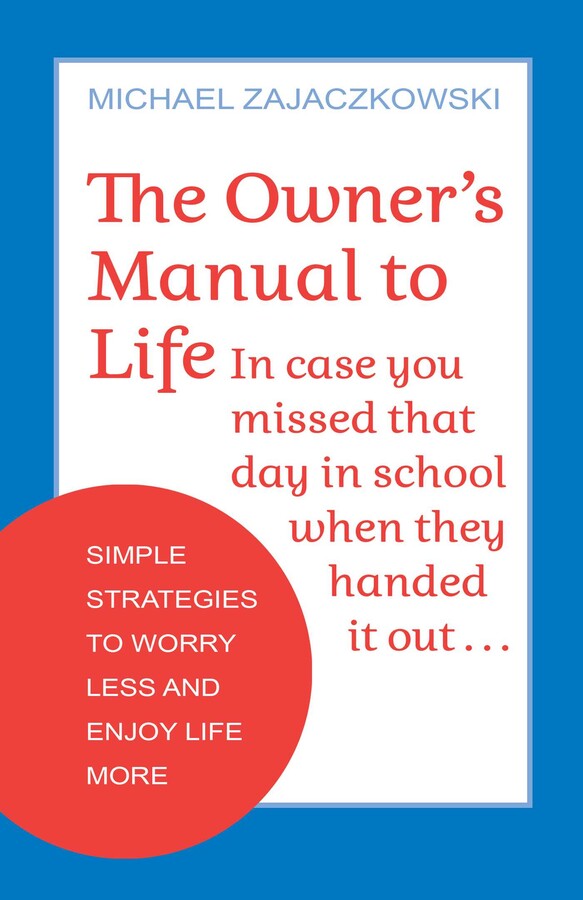None of us are perfect, even on our best days. And at times we may find ourselves having to apologize for a careless comment or thoughtless action. In the following excerpt, Michael Zajaczkowski, (https://prbythebook.com/experts/michael-zajaczkowski/) author of The Owner’s Manual to Life (https://www.simonandschuster.com/books/The-Owners-Manual-to-Life/Michael-Zajaczkowski/9780757324765), offers tips on what types of apologies to avoid and how to apologize in a way to soothe hurt feelings and mend relationships. His tips include:
• Avoid blaming
the other’s actions for your behavior.
• Offer reasons or excuses for your behavior.
• How to own your own role in a disagreement with humility and honesty.
This excerpt from his book will support you in your next apology:
Nobody is perfect. On any given day, we’re going to make mistakes, act on old programming, and make selfish or shortsighted decisions. We’re going to give in to fear or greed or self-centeredness and generally show a side of ourselves we’re not very proud of at the time. While we have all experienced moments like these, we also have the opportunity to redeem our- selves, at least partially, to set things right by making amends for our behavior by offering an apology. Offering a sincere apology can work wonders to soothe hurt feelings. However, making excuses along with an apology usually does just the opposite: it can prolong those hurt feelings and even add to them.
Here are two kinds of excuses to be on the lookout for when making an apology. The first is when you apologize and then blame the other person’s behavior. It usually goes something like this: “I’m really sorry for doing that, but I wouldn’t have if you didn’t keep doing ________.” While there are always two sides to every story, and while the other person may not have acted perfectly or may have also been partly at fault, blaming them for your behavior —even if justified— rarely eases anyone’s feelings and definitely doesn’t help to restore peace in a relationship. If you have ever done this, then you know this isn’t an apology; rather, it’s the start of an argument that usually turns into a long-standing one. It’s always better to own up to your own actions and let the other person do the same. Remember, your behavior is the only one you can control, and at the end of the day, you want your side of the street to be clean.
The other way to ruin an apology is to give a reason —valid or not— as to why you acted a certain way or took an action. Offering excuses in this way often cancels out the apology itself and leaves the other person still feeling hurt or disappointed. We’ve all been on the receiving end of these kinds of excuses, and an apology backed up with a ready-made excuse is often received as a veiled threat that the offending behavior is likely to continue should the same situation occur again. Certainly, no one is satisfied, and the dispute or hurt feelings don’t get resolved and often simmer, only to bubble up into a fresh disagreement later. Fortunately, there is a better way of making an apology that does work to set things right.
This better way is to say you’re sorry without offering any kind of excuse and to show that you mean it. In other words, show your feelings of contrition with humility and honesty. When you approach people this way, they identify with you because you become vulnera- ble by demonstrating your awareness of your faults. Doing so makes you relatable because we all make mistakes—no one is immune. When we own our mistakes and make a sincere attempt to apologize, people generally react in kind. They usually forgive us, and that’s why offering a sincere apology is so healing. It’s meant to free you both from negative feelings and restore you both to peace.
The next time you find yourself acting in a way you’d rather not repeat, or when you hurt someone’s feelings, intentionally or not, say you’re sorry and mean it. Keep your apology squarely centered on you and your behavior, and don’t ruin it by offering up an excuse or explanation. If the other person is still upset, ask what you can do to set things right, and then be willing to make a sincere attempt to follow through. While we’ll all continue to act imperfectly, at least we can apologize properly and make the amends that will get us back to the harmony we all desire.





































